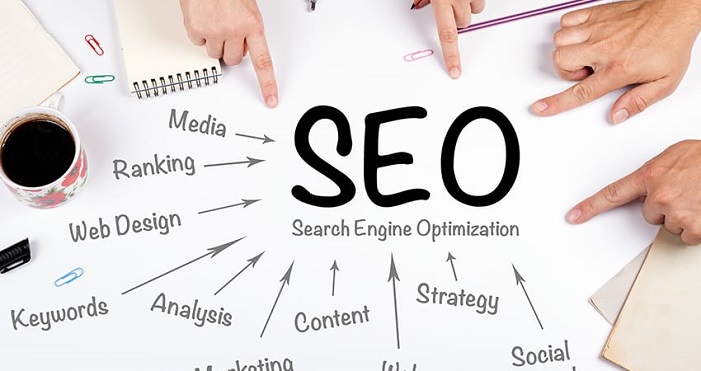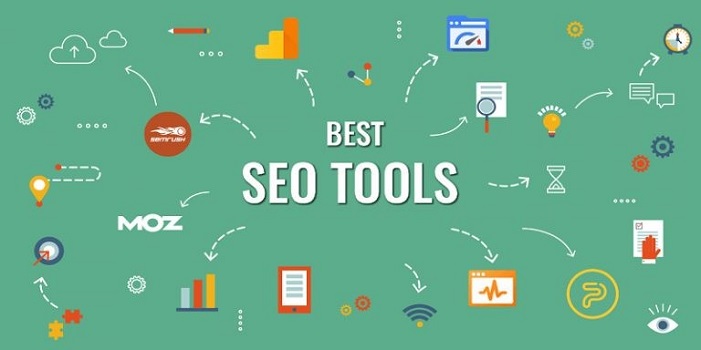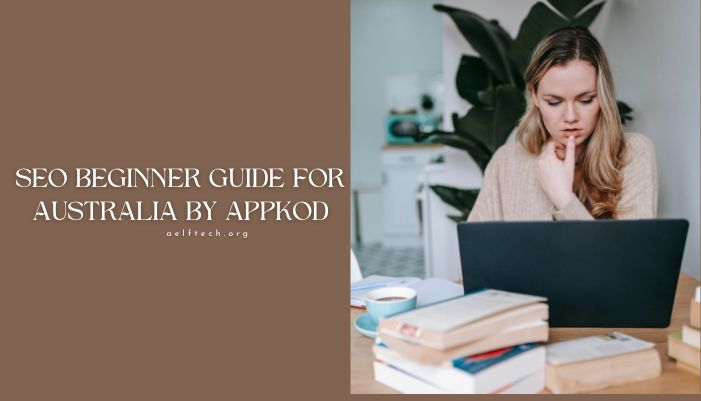SEO, or Search Engine Optimization, is essential for businesses in Australia aiming to be successful online. If you’re new to SEO, you might feel overwhelmed. But don’t worry, this guide is made for beginners like you. We will explain what SEO is and show you how to make your website more visible on search engines like Google. With the right steps, your website can rank higher, attract more visitors, and grow your business.
Whether you run a small business or a large company, SEO can help you stand out. Let’s take a look at how SEO works and the simple steps you can take to get started.
Contents
- 1 What is SEO and Why is it Important for Australian Businesses?
- 2 The Basics of SEO for Beginners
- 3 SEO Tools for Beginners
- 4 Conclusion
- 5 FAQs
- 5.1 1. How long does it take to see results from SEO?
- 5.2 2. What are the most important SEO ranking factors?
- 5.3 3. Can I do SEO myself, or should I hire an expert?
- 5.4 4. What is the difference between on-page and off-page SEO?
- 5.5 5. How do I find the right keywords for my website?
- 5.6 6. What are backlinks and why are they important?
- 5.7 7. Is local SEO necessary for my business?
- 5.8 8. Can SEO work for eCommerce websites?
- 5.9 9. How can I track the success of my SEO efforts?
- 5.10 10. Does social media help with SEO?
- 5.11 11. How often should I update my website’s content?
- 5.12 12. What role does website speed play in SEO?
- 5.13 13. What is mobile SEO?
- 5.14 14. Should I hire an SEO agency or do it myself?
What is SEO and Why is it Important for Australian Businesses?

SEO means improving your website to rank higher in search engine results. When your website ranks higher, more people will see it, and they may click on it. But why should you care about SEO?
Well, SEO is the most effective way to bring in free traffic from search engines. In Australia, there is a lot of competition online. Businesses need to use SEO to ensure that potential customers can find them.
Here’s why SEO is important:
- More Traffic: When your website ranks high, more people will visit.
- Cost-Effective: SEO is much cheaper than paid ads.
- Trust and Credibility: Websites that rank higher are often seen as more trustworthy.
SEO can be a game changer for your business. Let’s dive deeper into the basics so you can start applying SEO to your website.
The Basics of SEO for Beginners

SEO has a few important parts, and each one plays a key role in getting your website ranked higher. These include on-page SEO, off-page SEO, and local SEO. Let’s break them down.
1. On-Page SEO: Optimizing Your Website Content
On-page SEO refers to everything on your website that you can control. It includes things like using the right keywords, writing good content, and making sure your website is easy to use. Here are some simple steps to improve your on-page SEO:
Keyword Research
Keyword research is the first step in SEO. It helps you figure out what people are searching for. For example, if you own a café in Melbourne, people might be searching for “best café in Melbourne” or “coffee shop Melbourne.” You can use tools like Google Keyword Planner or SEMrush to find out what keywords are popular in your area.
Once you know the keywords, use them in your content. But remember, don’t overdo it. Use the keywords in a natural way.
Title Tags and Meta Descriptions
Title tags are the first thing people see when your website appears in search results. A good title should include your main keyword and make people want to click on it. For example, “Best SEO Services in Melbourne | Boost Your Rankings Today.”
Meta descriptions are short summaries that appear below your title in search results. They should also include your main keywords and explain what your page is about in a clear and attractive way.
Content Optimization
Your website’s content should be valuable and easy to read. This means using headings, short paragraphs, and lists to break up your text. Also, try to include your keywords naturally in the content, but don’t force them. Quality content is key to a high ranking.
Internal Linking
Internal linking means linking to other pages on your website. This makes it easier for search engines to crawl your website and understand its structure. It also helps your visitors navigate your website.
2. Off-Page SEO: Building Website Authority
Off-page SEO refers to actions you take outside your website to improve your rankings. The most important factor in off-page SEO is backlinks. Backlinks are links from other websites that point to your site. Search engines see backlinks as votes of confidence.
Quality Backlinks
Getting backlinks from trustworthy websites helps build your website’s authority. Try to get backlinks from websites in your industry or from well-known publications. You can also write guest posts for other blogs and ask them to link back to your website.
Social Media Signals
While social media doesn’t directly affect rankings, it can still help. When people share your content on social media, it drives traffic to your website. This can lead to more backlinks and more exposure.
3. Local SEO: Optimizing for Australian Customers
If your business serves a specific location in Australia, local SEO is important. Local SEO helps you rank for searches that are relevant to your area. Here’s what you can do to improve your local SEO:
Google My Business
Google My Business is a free tool that lets you control how your business shows up in search results and on Google Maps. Make sure you set up your profile with accurate information, such as your business hours, phone number, and address. Add some photos of your business and ask happy customers to leave reviews.
Local Citations
A local citation is when your business name, address, and phone number (NAP) are listed on other websites. The more citations you have on trusted directories, the more likely you are to rank higher in local searches. Just make sure your NAP is consistent everywhere.
Online Reviews
Online reviews are another important part of local SEO. Positive reviews on Google and other review sites can boost your local rankings. Encourage your customers to leave reviews, and always respond to them to show that you care about feedback.
SEO Tools for Beginners

There are plenty of free tools that can help you with SEO. These tools make it easier to track your website’s performance and make improvements. Here are some of the best SEO tools to get you started:
- Google Analytics: This free tool shows you how much traffic your website is getting and where it’s coming from.
- Google Search Console: Use this tool to check for any issues on your website and see how it performs in Google search results.
- Yoast SEO (for WordPress): If you use WordPress, this plugin helps you optimize your content and improve your rankings.
Website Design AppKod: Creating Stunning, High-Converting Websites
Conclusion
SEO is a powerful tool for growing your business. By following the steps in this guide, you can start improving your website’s ranking today. Remember, SEO takes time, so be patient and keep working on it. Over time, you’ll start to see more traffic and higher rankings.
To recap, focus on keyword research, write high-quality content, and work on getting backlinks. If you have a local business, make sure to set up your Google My Business profile and get reviews. Lastly, use SEO tools to track your progress.
FAQs
1. How long does it take to see results from SEO?
It can take anywhere from 3 to 6 months to see results from SEO, depending on your industry and how much work you put into it.
2. What are the most important SEO ranking factors?
The most important factors are keywords, content quality, backlinks, mobile-friendliness, and site speed.
3. Can I do SEO myself, or should I hire an expert?
You can do SEO yourself with the right tools and resources. However, if you want quicker results or need help with advanced strategies, hiring an expert might be a good idea.
4. What is the difference between on-page and off-page SEO?
On-page SEO refers to optimizing elements on your website, like content, keywords, and HTML tags. Off-page SEO focuses on actions taken outside your website, such as building backlinks and gaining social media exposure.
5. How do I find the right keywords for my website?
You can use tools like Google Keyword Planner, Ahrefs, or SEMrush to find keywords that people are searching for. Focus on keywords that are relevant to your business, have high search volume, and low competition.
6. What are backlinks and why are they important?
Backlinks are links from other websites that point to your site. They act as a vote of confidence, signaling to search engines that your content is trustworthy and valuable. More quality backlinks can improve your rankings.
7. Is local SEO necessary for my business?
If your business serves customers in a specific location, local SEO is crucial. It helps your business show up in local search results, which can drive more traffic from people in your area looking for your products or services.
8. Can SEO work for eCommerce websites?
Yes, SEO is essential for eCommerce websites. By optimizing your product pages, using the right keywords, and improving your site’s structure, you can attract more organic traffic, leading to higher sales.
9. How can I track the success of my SEO efforts?
You can track SEO performance using tools like Google Analytics and Google Search Console. These tools will show you how your website is performing, what keywords are driving traffic, and where you can improve.
While social media doesn’t directly affect SEO rankings, it can increase brand awareness and drive traffic to your website. The more people share your content on social media, the more likely it is to generate backlinks and improve your overall SEO.
11. How often should I update my website’s content?
It’s a good idea to update your content regularly, especially for blogs and product pages. Fresh content is a signal to search engines that your website is active, and it also keeps your audience engaged with new and relevant information.
12. What role does website speed play in SEO?
Website speed is a crucial factor for SEO. Google favors fast-loading websites, as they provide a better user experience. If your site takes too long to load, users may leave, and search engines may lower your ranking.
13. What is mobile SEO?
Mobile SEO refers to optimizing your website for mobile devices. Since more people are browsing on phones, having a mobile-friendly website is important for both user experience and SEO.
14. Should I hire an SEO agency or do it myself?
If you have the time and resources, you can certainly learn and implement SEO on your own. However, hiring an SEO agency can speed up the process and bring expertise to help improve your rankings faster.


